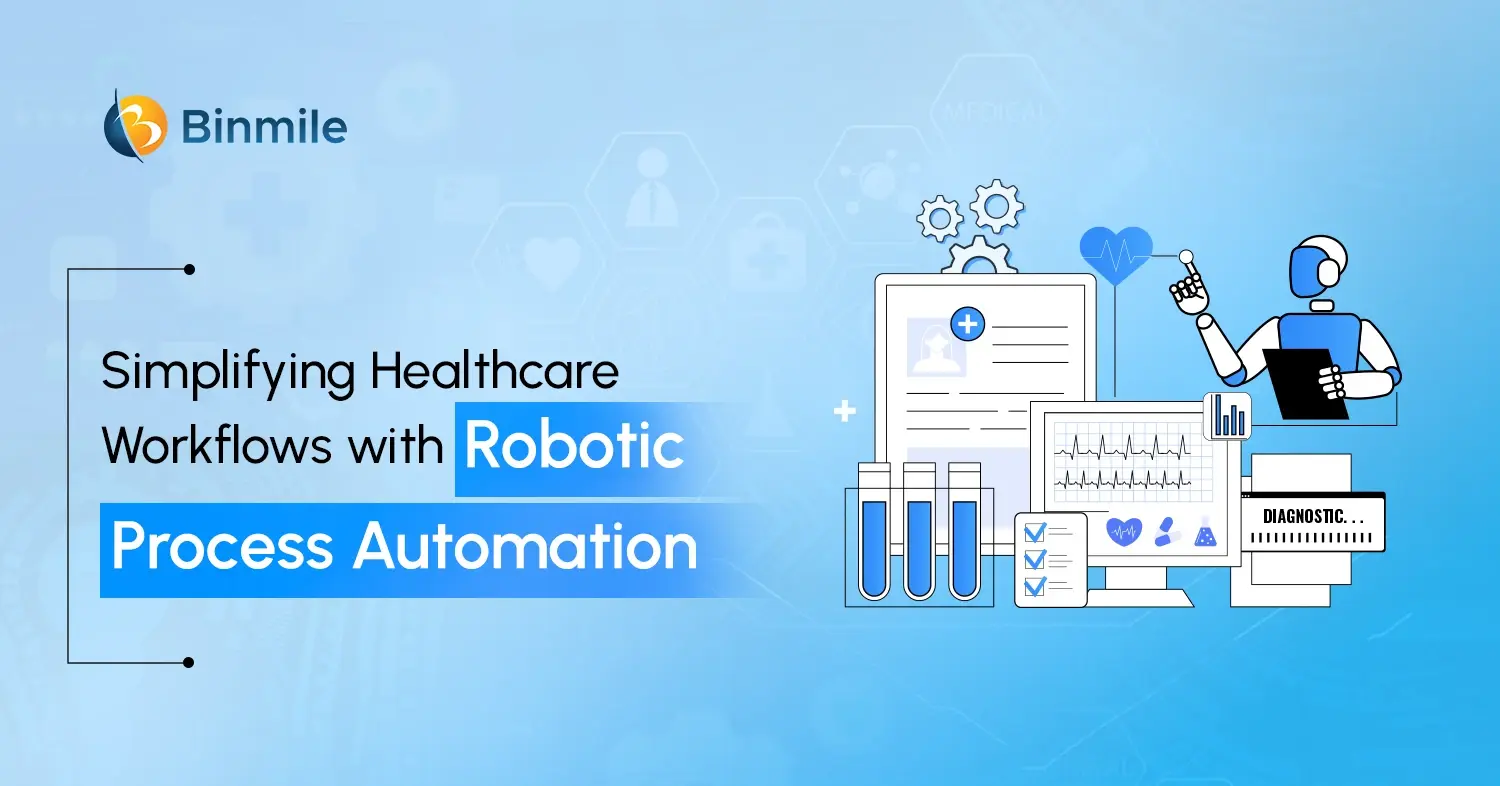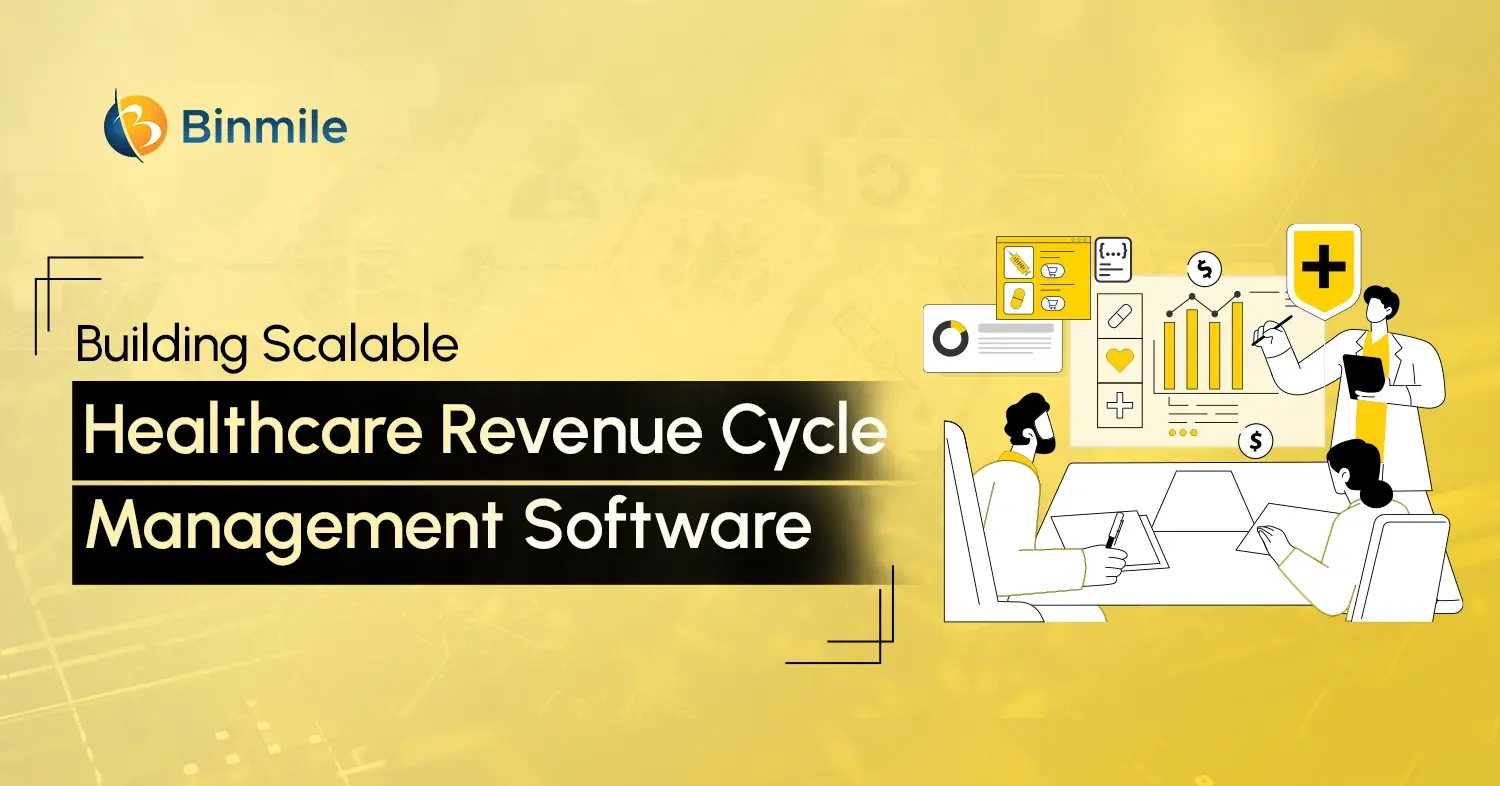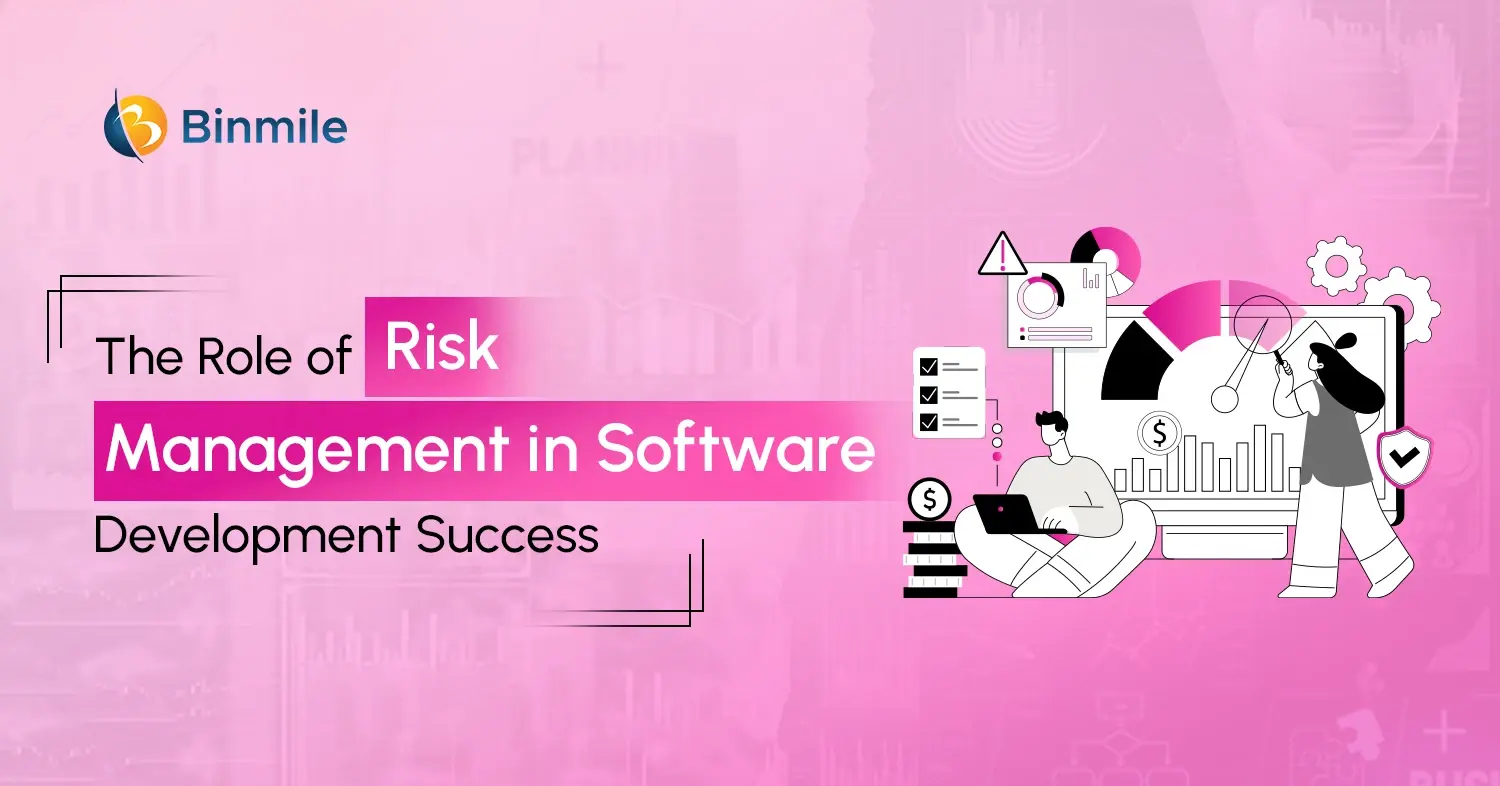- cloud-based hotel management software
- Cost to Develop Hotel Management Software
- features of hotel management software
- Hotel Maintenance Software
- hotel management software
- hotel management software development cost
- hotel management software system
- how to build hotel management software
- tips to develop a custom hotel management system
For an efficient hotel management system, every aspect of the operations right from reservations, check-ins, and room assignments, needs to be aligned and well in place. However, it becomes challenging to keep up with the ever-changing guest preferences and market trends using a single standalone system. This is where you need a hotel management software system. With the help of an effective, versatile, and resilient hotel maintenance software lets you automate routine operations, reduce errors, and increase staff productivity. The software can also optimize inventory management and track housekeeping services for improved efficiency.
All in all, hotel maintenance software offers a lot of benefits to the travel & tourism industry. So what is hotel management software? Well, these software are built to manage and assist the day-to-day activities of hotels, resorts, or other such places. The types may include revenue management systems (RMS), property management systems (PMS), reputation management systems, shopper software, and channel managers. So, let’s understand how cloud-based hotel management software can help you streamline your operations, and ensure your guests receive faster and more efficient services. In this blog, we’ll cover must-have features, the estimated development cost, the essential tech stack, and a real-world example of hotel management software. This will help you improve the efficiency of your services and give you the support you need to excel in crucial operational areas.
Building Customized Hotel Management Software: 6 Steps to Know
A high-quality hotel management software not only empowers you to manage reservations, staff, inventory, billing, and all in one place but it does more. End-to-end hotel maintenance also streamlines your processes, boosts efficiency, and enhances guest experiences. This is possible if you know the tips to develop a custom hotel management system, so have a look at the recommended steps:

1: Define Your Requirements
Define your hotel’s unique needs to create a software solution that truly serves your business, helps you reduce software development costs, and keeps the project development on track. So, consider these key areas:
- Hotel Specifics: It focuses on what kind of (boutique, resort, business hotel), size, target market, and overall positioning you want to cover.
- Operational Challenges: Identify pain points in your current processes, such as manual tasks, data inconsistencies, or slow booking procedures.
- Desired Functionalities: Highlight core features like reservations, room management, guest profiles, housekeeping, front desk operations, and reporting.
- Integration Requirements: Determine which existing systems (PMS, CRM, payment gateways) must be integrated for seamless operations.
- Long-term Vision: Outline your hotel’s growth plans and how the software can evolve to support future expansion.
2: Fine-tune Software Scope & Functionalities
Outlining the scope of your custom hotel management software offers a clear roadmap for development. It also ensures the software development process stays focused on delivering the most valuable features within budget and timelines. Focus on these aspects:
- Core Modules: Decide the essential components of the software, such as reservations, room management, guest profiles, housekeeping, front desk operations, and reporting.
- Feature Prioritization: Rank the functionalities based on their importance and impact on hotel operations.
- Integration Points: Identify existing systems (PMS, CRM, payment gateways) that need to be integrated with the software.
- User Roles and Permissions: Define different user roles (e.g., management, front desk, housekeeping) and assign appropriate permissions.
- Data Requirements: Figure out the types of data that need to be collected, stored, and analyzed (e.g., guest information, booking details, financial data).
- Scalability: Consider the future growth of your hotel and ensure the software can adapt to increased demands.
3: Build a Strong Development Team
You have two options to go with your development strategy. Either assemble a skilled and experienced development team in-house or outsource custom software solutions to make sure the software solution is top-notch.
- Core Team: Include project managers, software developers, UI/UX designers, and database administrators.
- Consider Outsourcing: If in-house resources are limited, consider partnering with a software development company specializing in hospitality solutions.
- Define Clear Roles and Responsibilities: Ensure effective communication and collaboration within the team.
- Prioritize Technical Expertise: Select developers with proficiency in relevant software development tech stack (e.g., Java, Python, .NET, SQL).
4: Architect a Scalable and Secure Solution
Both aspects are crucial parts of your software development. If scalable architecture lets you handle increased user demands and business growth without compromising performance, then robust security protects sensitive guest data and maintains system integrity. Key factors are:
- Data Structure: Create a flexible and efficient database to store guest information, reservations, financial data, and operational details.
- User Interface: Develop a user-friendly and intuitive interface for both staff and guests, considering different user roles and permissions.
- Integration Capabilities: Design a modular architecture to facilitate integration with existing systems and future technologies.
- Security: Implement robust security measures to protect sensitive guest data, including encryption, access controls, and regular security audits.
- Scalability: Build a system that can handle increased user loads and data volumes as your hotel grows.
5: Develop, Test, and Refine
This is where you transform the design into a functional software product development service. It enables you to keep the software working as intended and meets user needs, while iterations and refinement based on feedback create a product that boosts user experience and truly serves its purpose.
- Agile Development: Adopt an iterative approach to incorporate feedback and ensure flexibility.
- Rigorous Testing: Conduct thorough testing to identify and fix bugs, ensuring optimal performance and reliability.
- User Acceptance Testing: Involve hotel staff in testing to gather feedback and ensure the software meets their needs.
- Data Migration: Develop a plan to migrate existing data from legacy systems to the new software with the legacy app modernization solutions.
6: Implement, Train, and Optimize
Once development and testing are done and is ready to become a valuable tool for staff, make sure that you offer comprehensive training so they can fully realize its potential. In addition, don’t skip ongoing optimization based on feedback, updates, and performance metrics as these guarantee the software continuously improves and meets evolving needs.
- Change Management: Develop a communication plan to inform staff about the new system and its advantages.
- Comprehensive Training: Provide hands-on training to all staff members involved in using the software.
- Data Validation: Ensure data accuracy and consistency during the migration process.
- Ongoing Support: Offer technical support and assistance to address any issues or questions.
- Continuous Improvement: Gather feedback from users and implement changes or improvements based on their needs.
Want to know how we can develop for you a next-gen hotel management software and help you shape the future of hospitality?
How Much Does It Cost to Develop Hotel Management Software?
The average custom hotel software development cost depends on factors such as HMS type, features, or the added API integrations. Still, an estimated hotel management software development cost typically ranges from $40,000 to $300,000 or more.
| Type of Software | Features | Cost Estimation |
|---|---|---|
| Basic Software | Essential functionalities such as room booking, guest check-in/check-out, basic billing, and simple reporting | $40,000 to $60,000 |
| Intermediate Software | Enhanced features including advanced reservation systems, inventory management, comprehensive billing, CRM, and detailed reporting tools | $60,000 to $90,000 |
| Advanced Software | Full-scale solutions with sophisticated functionalities such as real-time booking systems, dynamic pricing, integration with third-party services, advanced CRM, data analytics, and mobile app integration for guests and staff. | $90,000 to $300,000+ |
Top 10 Essential Features for an Effective Hotel Management Software System
What is the best hotel management system software?
The answer lies in the one that has a robust set of features to help hospitality professionals save time, enhance their operations, refine each client’s experience, and raise revenue. Therefore, we’re listing the top 10 features that your Hotel management software must have so you can manage all aspects of your business, from guest reservations and check-ins to housekeeping and accounting.
So, the main functions of a hotel system are centered around:

- Reservation Management: It streamlines the booking process, allowing hotels to manage room reservations efficiently, and includes real-time availability updates and integration with online booking channels to prevent overbooking.
- Guest Check-in & Check-out: An efficient check-in and check-out system speeds up these processes, enhancing the guest experience. It should support digital check-ins, mobile keys, and express check-out options.
- Billing & Invoicing: Accurate billing and invoicing features ensure all charges are correctly applied and communicated to guests and consist of features such as room charges, additional services, and automated invoice generation.
- Housekeeping Management: This feature helps schedule and track housekeeping tasks by providing status updates and maintenance requests in real-time thus, ensuring rooms are cleaned and maintained promptly.
- Channel Management: This feature lets you integrate with various online travel agencies (OTAs) to manage rates and availability across multiple platforms. Thus helping your business maximize room occupancy and revenue by reaching a broader audience.
- Customer Relationship Management (CRM): If you’ve got a built-in CRM, you can manage guest data, preferences, and communication, enabling personalized service. It also supports your marketing efforts through targeted promotions and loyalty programs.
- AI-powered Analytics: The in-depth insights from the data collected help you look into hotel performance, guest behavior, and financial metrics. These data-driven insights assist in making informed business decisions and strategic planning.
- Mobile Accessibility: Mobile-friendly software allows staff to access key functions and data on the go, improving operational efficiency. It’s particularly useful for managers if they need to oversee operations remotely.
- Point of Sale (POS) Integration: POS can consolidate on-site purchases such as restaurant bills, spa services, and other amenities. This improves your service by making transactions quicker and more secure, freeing up your staff to engage with customers.
- Inventory Management: Effective inventory management tracks and manages hotel supplies, from room amenities to restaurant stock. It helps in optimizing inventory levels, reducing waste, and ensuring timely replenishments.
Also Read: Hotel Booking App Development Guide
Essential Tech Stack for Developing Modern Hotel Management Software
To develop scalable, secure and high-performing hotel management software, selecting a right tech stack is essential. The platform should handle real-time data, manage complex operations, and ensure seamless integrations while providing a user-friendly experience.
Frontend Technologies:
- React.js: Ideal for creating dynamic and responsive interfaces.
- Angular: Provides a structured framework for building complex, enterprise-level frontends.
- Vue.js: Lightweight and easy to integrate, suitable for smaller applications.
- HTML5 and CSS3: Ensures clean, modern, and mobile-friendly UI/UX.
- Bootstrap or Tailwind CSS: Simplifies responsive design with ready-to-use components.
- Next.js or Nuxt.js: Enhances performance with server-side rendering (SSR) and static site generation (SSG).
Backend Technologies:
- Node.js: Handles high-concurrency, real-time operations efficiently.
- Django: Provides a secure and scalable backend with built-in admin functionality.
- Flask: Ideal for lightweight applications that require rapid development.
- Spring Boot: Great for enterprise-level applications with complex business logic.
- Ruby on Rails: Simplifies backend development by following convention over configuration.
- ASP.NET Core: Suitable for high-performance, enterprise-grade applications.
Database Options:
Relational Databases (SQL):
- PostgreSQL: Highly reliable and supports advanced querying.
- MySQL: Ideal for structured data and high-traffic applications.
- Microsoft SQL Server: Suitable for enterprise-grade hotel management solutions.
NoSQL Databases:
- MongoDB: Stores semi-structured and unstructured data efficiently.
- Cassandra: Handles massive amounts of data across multiple nodes.
- DynamoDB: Fully managed NoSQL database by AWS with low-latency performance.
In-Memory Databases:
- Redis: Improves response times by enabling fast data caching.
- Memcached: Stores frequently accessed data for faster retrieval.
Cloud Infrastructure & DevOps Tools:
Cloud Providers:
- Amazon Web Services (AWS): Scalable, secure, and reliable cloud infrastructure.
- Google Cloud Platform (GCP): Offers AI/ML capabilities and seamless integrations.
- Microsoft Azure: Ideal for enterprise-level cloud deployments.
Containerization & Orchestration:
- Docker: Simplifies app deployment through containerization.
- Kubernetes: Manages container orchestration for large-scale applications.
CI/CD Pipelines:
- Jenkins: Automates software delivery pipelines.
- GitHub Actions/GitLab CI/CD: Provides continuous integration and delivery workflows.
Monitoring & Logging:
- Prometheus: Monitors application performance in real-time.
- Grafana: Visualizes performance data and identifies bottlenecks.
- ELK Stack (Elasticsearch, Logstash, Kibana): Handles log management and analysis.
API Management & Integrations:
- RESTful APIs: Ensures seamless integration with external services.
- GraphQL: Provides flexibility in data queries and minimizes over-fetching.
- SOAP APIs: Ensures secure communication between hotel systems.
- API Gateway (AWS API Gateway / Kong): Manages API requests efficiently.
Payment Gateway Integration:
- Stripe: Secure online payment processing.
- PayPal: Facilitates global payments with ease.
- Razorpay: Popular in India for seamless transactions.
- Braintree: Supports recurring payments and advanced fraud protection.
Security Enhancements:
- OAuth 2.0 & JWT (JSON Web Tokens): Manages secure user authentication and authorization.
- SSL/TLS Encryption: Protects sensitive data during transmission.
- WAF (Web Application Firewall): Blocks suspicious requests and prevents cyber threats.
- IAM (Identity and Access Management): Ensures role-based access control.
Real-Time Communication & Notification Systems:
- WebSockets: Provides real-time updates for bookings and inventory changes.
- Firebase Realtime Database: Ensures instantaneous data syncing.
- Push Notifications: Keeps users informed about reservations and updates.
Search & Filtering Capabilities:
- Elasticsearch: Enhances search functionality with fast query response.
- Algolia: Offers lightning-fast search and filtering options.
AI/ML Integration for Smart Automation:
- TensorFlow or PyTorch: Enables predictive analytics and personalized recommendations.
- Chatbots (Dialogflow / Rasa): Enhances customer support with AI-powered assistants.
- Recommendation Engines: Suggests relevant offers and upsell opportunities.
How Cloudbeds Built a Scalable Hotel Management Platform?
Cloudbeds, an award-winning hospitality software platform, developed an all-in-one hotel management software to streamline operations for small and mid-sized hotels. Their goal was to create a unified platform combining property management, channel management, and direct booking capabilities.
Key Challanges They Faced:
- Inefficiencies caused by using multiple disconnected systems.
- Frequent overbookings due to manual inventory updates.
- The need for a scalable, cloud-based platform to manage operations effectively.
How They Addressed It:
They implemented following core funcationalities:
- Property Management System (PMS): To automates reservations, check-ins, and housekeeping management.
- Channel Manager: Syncs room inventory and rates across multiple online travel agencies (OTAs) such as Booking.com and Expedia in real time.
- Booking Engine: Enables direct online bookings to reduce dependency on third-party platforms.
- Analytics and Reporting: Provides actionable insights for data-driven decision-making.
What Result They Achieved?
Cloudbeds achieved remarkable results after implementing their solution. They saw a:
- 30% increase in direct bookings, reducing dependence on third-party OTAs.
- The platform also led to a 40% reduction in overbookings by improving inventory accuracy through real-time channel management.
- Cloudbeds expanded its global footprint and now serves over 22,000 properties across 157 countries, demonstrating the platform’s scalability and effectiveness.
Seamless Operations & Exceptional Guest Experiences Guaranteed With Binmile
Maximize your business impact and transform hospitality with our developers with custom Hotel maintenance software development services that combine consulting, strategy, design and engineering at scale. From custom features such as reservation management, billing, and CRM, to housekeeping automation, we simplify your operations, increase productivity, revenue and empower you to offer enhanced customer experiences that stay with them even after they leave your premise!
Gain business visibility with one-click hotel reports and stay competitive with custom software solutions designed to future-proof your hotel management system.
Wrapping It Up
To run a successful hotel business you must offer excellent customer service, have attention to details, and a focus on creating a seamless and hospitable environment for your guests. All of which a hotel maintenance software is capable of delivering. Therefore, with the right hotel management software, you can streamline your operations, offer exceptional hospitality services, and boost overall profitability. So, if you have the idea for developing a hotel management system and a right-fit partner, you’re all set for success!
In this blog, we discussed the intricacies of building a top-quality hotel maintenance software system for your business. In addition to that we also shared the top features your software must have. Hopefully, this has given you the right insight into the custom software development landscape and you’re on your way to get the ideal hotel software solution that meets your needs.
Frequently Asked Questions
To choose the right hotel management software, consider factors such as ease of use, scalability, integration capabilities, customer support, and cost. It’s also helpful to read reviews, request demos, and consult with other hotel managers to find a solution that best fits your property’s needs.
Hotel management software can help with revenue management by providing real-time data on occupancy rates, pricing trends, and market demand. Advanced features like dynamic pricing and yield management tools enable you to optimize room rates and maximize revenue based on changing market conditions.
Reputable hotel management software providers implement strong security measures, including data encryption, secure cloud storage, regular backups, and compliance with data protection regulations (such as GDPR). Always verify the security protocols and certifications of the software provider before committing.
Hotel management software enhances guest experience by:
- Efficient check-in and check-out: Reducing wait times and providing personalized service.
- Accurate room assignments: Ensuring guest preferences are met.
- Enhanced communication: Enabling effective guest interaction and resolving issues promptly.
- Personalized services: Offering tailored amenities and services based on guest data.









